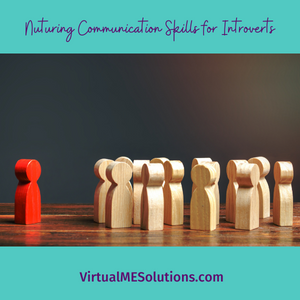Being in a leadership position can be a real test of your communication skills. To effectively work together to reach your shared goals, you have to be able to connect with your team.
You may be surprised to hear that almost 57% of employees say their manager gives them inadequate directions, and 69% of managers say they’re uncomfortable communicating with employees in general (stats from HR Technologist).
If you think you may need some help communicating effectively with your team, you are not alone. With some practice and a little effort, you can develop the essential communication skills that leaders need.
Speak Clearly
- Plan ahead. Before you speak, take time to reflect. Know your purpose, so you can develop strategies and systems that match your values. Be sure to choose appropriate times and channels for what you have to say.
- Simplify your message. Your employees may feel inundated with too much information. Consider using quick graphics to replace a long speech. Format your emails and memos with bullets and headlines to make them easier to read.
- Stay in touch. Provide frequent opportunities for updates and discussions: schedule staff meetings and one-on-ones. Publish a staff newsletter. Make yourself visible and approachable.
- Tell stories. A compelling anecdote can inspire your team and unite them around a common mission. Build a plot around one or two main points. Focus on concrete examples and emotional appeal.
Listen Closely
- Pay attention. How observant are you? Being aware of your surroundings will help you keep up with informal conversations and nonverbal cues.
- Ask questions. If you want to know what your team is thinking, go straight to the source. Ask open-ended questions that allow others to elaborate on their responses and avoid biased wording that could influence their answers.
- Welcome feedback. Encourage your team to let you know how they think you’re doing. Thank them for their honest and constructive input and use it to enhance your performance. When possible, hold meetings to invite their feedback before making decisions and collaborate on making action plans.
- Let go of judgments. What’s the difference between hearing and listening? As a leader, it’s essential to use your mind as well as your ears. Let others finish what they’re saying without interrupting them or thinking about your response. Try to put yourself in their position.
Set the Tone
- Be inclusive. Diverse organizations need leaders who can relate to various audiences and create an atmosphere where each team member is valued and respected. That means building genuine relationships and recognizing individual and group contributions.
- Show empathy. Authentic connections depend on caring about the needs of others and being able to understand their thoughts and feelings. Developing a culture of compassion also promotes helpful behaviors and cooperation.
- Follow through. Actions really do speak louder than words. To earn trust, you must lead by example. Deliver on your promises and ensure that your efforts are consistent with what you say.
- Resolve conflicts. Effective communication can promote harmony, but disagreements will still happen. Stay calm and search for mutually beneficial solutions.
Successful leaders know how to use their communication skills to build trust and motivate others. Expressing yourself with clarity and compassion can help you develop strong working relationships and guide your team to success.

Ready to take back your time and be more productive? Organization is my superpower! Contact Virtual ME Solutions today to learn how I can help you grow your business.











